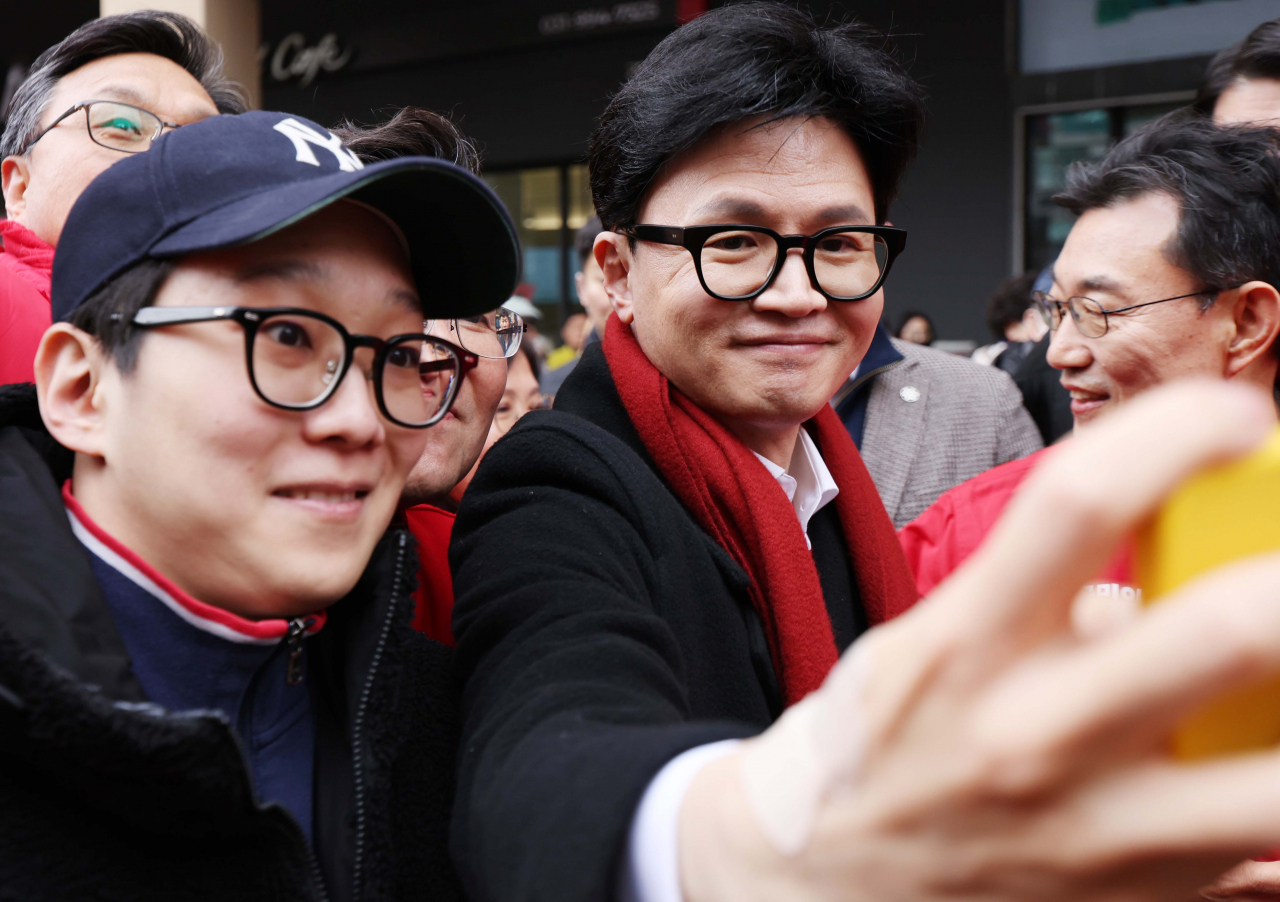[Election 2024] Will ruling party maintain winning momentum in run-up to election?
Things to watch as the 2024 general election race heats up
By Kim ArinPublished : March 11, 2024 - 18:41

Come April 10, South Koreans will head to the polls to choose the next batch of National Assembly members.
With about a month left until election day, the latest polls find the ruling People Power Party’s leading while its rival, the Democratic Party of Korea, has been bogged down by infighting.
According to a March 5-7 Gallup Korea survey of 1,000 voters aged 18 and up, 37 percent said they would vote for the People Power Party as opposed to 31 percent who said they would cast their ballot for the Democratic Party. Other surveys by major pollsters similarly showed the ruling party holding the edge over the opposition party by up to 7 percentage points.
The ratings at this point in the campaign season are a key indicator of how parties will fare on election day, observers say.
In the past several general elections, the party with higher ratings about a month ahead of the election day ended up winning more seats. A recent exception is the 2020 general election, when the current ruling party was gripped by a fierce factional war that continued until the day of the election.
Kim Boo-kyum, who was prime minister for the former President Moon Jae-in of the Democratic Party, blamed the party’s internal divisions for the faltering campaign.
“I think one of the things that is making things difficult right now is the division among us, which remains an open wound,” he told reporters.
Kim on this day accepted the Democratic Party’s request to co-head the election steering committee, pledging to unite the party to victory.
The friction between the various Democratic Party factions has been on public display for the past few months as the party began to select candidates to run for the upcoming election. Some lawmakers who aren’t aligned with the party leader, Rep. Lee Jae-myung, claimed they suffered a disadvantage, with about a dozen of them choosing to leave the party.
The Democratic Party is rallying around the theme of anti-President Yoon Suk Yeol while the People Power Party is big on reform -- reform of health care services, housing and politics.
“Since Yoon, living costs have skyrocketed, the risk of a war on the Korean Peninsula has escalated and South Korean democracy is under attack,” Lee said in a meeting of Democratic Party leadership on Monday. “All that is going to change when we claim victory on April 10.”
Han Dong-hoon, the interim leader of the People Power Party, told supporters Monday that the Yoon administration would have the support of the Assembly that it needs to legislate when the ruling party, which is currently outnumbered by the rival party, regains the majority.
South Korea is introducing a number of new measures to prevent allegations of voter fraud from resurfacing, including a mandatory audit of all ballots via hand count, according to the National Election Commission Live closed-circuit TV footage showing ballot boxes will be publicly available 24 hours a day via screens installed at the NEC office of each district. Ballot boxes are to be escorted by police when moved from one location to another. QR codes on paper ballots will be replaced with barcodes designed to be more secure.
The NEC underwent months of cybersecurity enhancement last year after the National Intelligence Service found that hackers for North Korea’s General Reconnaissance Office had broken into the computer servers of senior officials with the election watchdog. As a result of the breach, some confidential information had been leaked to North Korea, according to the NIS.
The NEC is doubling down on a crackdown on artificial intelligence deepfakes that misrepresent candidates or that can otherwise trick voters. Deploying AI deepfakes in election campaigns can lead to a jail sentence of up to seven years or a fine of up to 50 million won ($38,158).




















